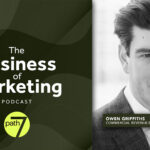By Mary Anzalone, Vice President, Product Marketing, Partnerize
Over the past 20 years, automation has transformed digital marketing and media, in all its forms, one way or another. Despite its ability to change the game, however, its impact has been gradual — and that’s mostly about marketer acceptance and adaptation to innovation. Sometimes, given our manual origins, even the most beneficial advances take some time to become industry standard. There’s pride in having done the hard work in the earliest days of digital — and to some degree, automation triggers fear of job loss and redundancy.
But, at some point, innovation, systems, analytics, and measurability all progress and come together as a unified picture of a more evolved possibility, marketer sentiment and adoption accelerate the shift. Take one of the most rapidly accelerating areas of marketing: partnership and affiliate. As a case study unfolding in real-time, we are moving from our legacy origins to something far more scalable. And this has everything to do with the outcomes that automation is enabling.
Partner and affiliate marketing was historically based in manual, repetitive work e.g., finding and recruiting partners, analyzing results, working out the best commission strategy, creating a more diverse set of partners. Those tasks were mainly human-driven and manual, with little automation. Marketers were for the most part OK with this until there became imperative to scale and do so, profitably. The quest for better tools, systems and accountability became more urgent. Fortunately, those innovating in the space — ensuring platforms, systems, better data science, more compelling outcome-driven business models — were there to respond.
Like other marketing channels seeing the new and improved way forward, partner marketing is now starting to embrace a data-driven approach to provide both automation and optimisation. For example, marketers are increasingly using AI to discover best-fit partners or to create more partner diversity, which they can then evaluate for performance and optimize toward best relative outcomes. AI and machine learning are effectively unlocking affiliate’s ability to provide meaningful automated support for partner discovery — serving as a matchmaker between marketer and partner, based on audience match, relevance, and such. “Best fit” is no longer tedious, manual, evaluative work. These systems are taking it on, cross-referencing fit things like visitors, followers, social footprint, or composition and lifting the load. On the flip side, marketers increasingly focused on quality and safety, are also using AI to automatically detect partner fraud.
In 2020, the possibility of this more automated “present” made it clear that we were evolving toward a more abundant future, with partnership and affiliate becoming a true mainstay within the CMO’s marketing strategy and plan. I believe that partner marketing will follow other channels to become more customer-centric and use data and intelligence to not only optimize for revenue but also improve customer experience throughout the entire journey — which in turn drives more sustaining results. We are going to see those engaging in partnership and affiliate creating personalized offers on partner sites that are tuned quite specifically to the profile of each customer.
To shine a light on the next generation of a couple of emerging practices — testing and commissioning — the future will have marketers using AB testing much more nimbly (because of automation) to prove the impact of particular creatives or offers on the partner sites. The ability to do this rapidly, at scale, cannot be understated. In addition, the industry’s future systems will allow for dynamically optimizing commission strategies in order to drive the greatest returns and find more ideal customers.
Strategically and also at the practitioner level, there are plenty of very specific things to be excited about when it comes to the automation of partnership marketing and the affiliate workflow. However, at a very human level, it’s pretty simple. When taken in a broad context, AI, machine learning, and automation will transform the way we work—freeing people from mundane tasks allowing them to instead focus on the high-value tasks that people do best. That orientation ultimately ensures we will be more customer-centric in everything that we do. And to that, there is nothing but upside.






